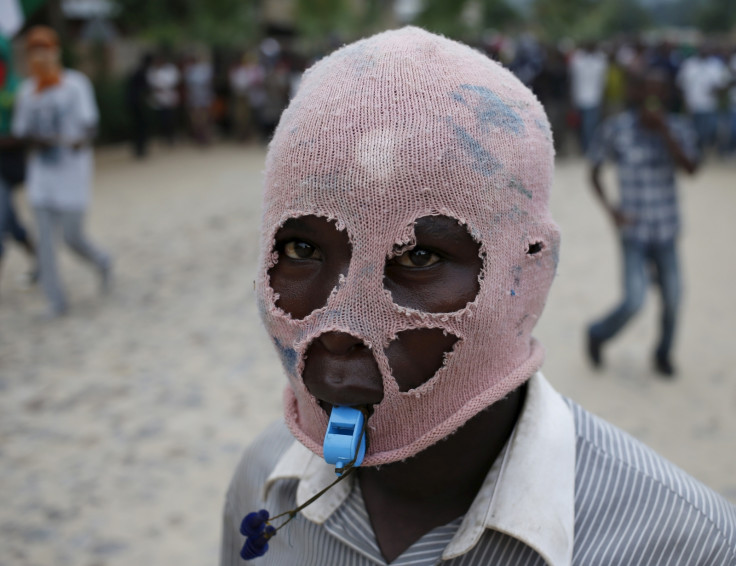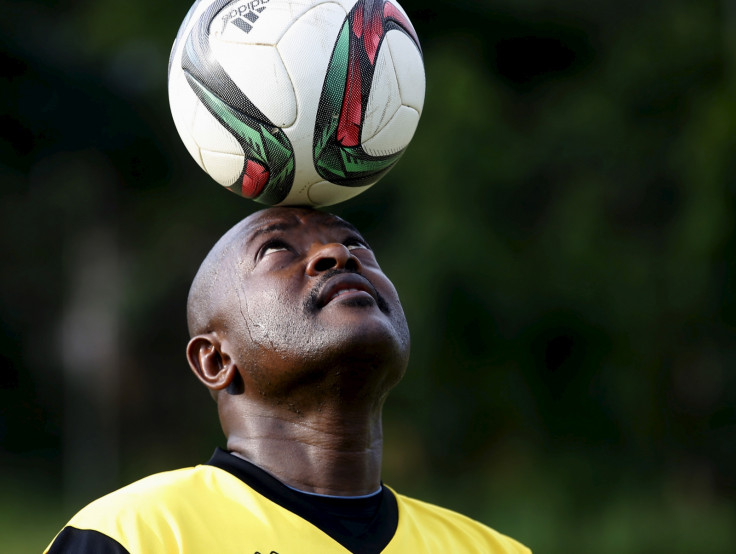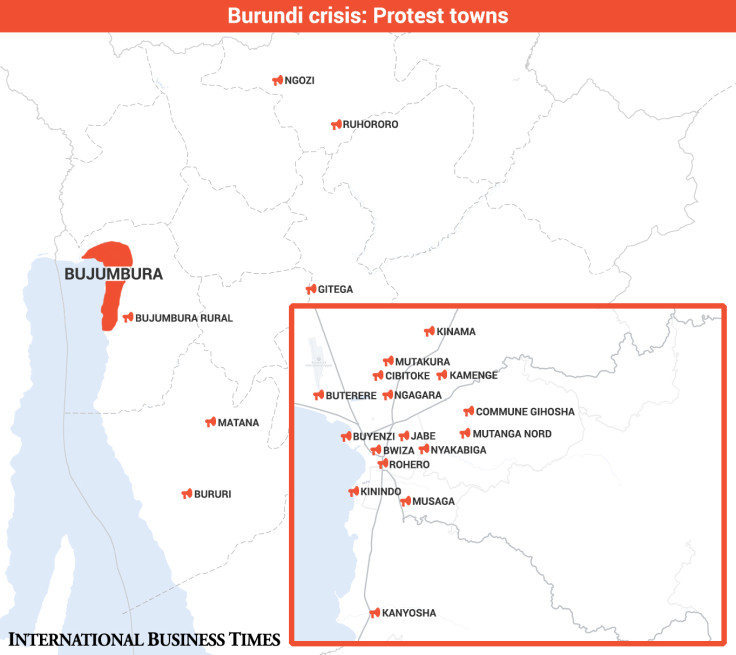Burundi: Opposition asks protesters to get whistles in demonstration campaign against president

Burundians who are against President Pierre Nkurunziza's third-term bid have been asked by leaders of the opposition to get hold of whistles for a new campaign, which they hope will encourage them to continue demonstrating, as police carry out a relentless crackdown on dissidents.
Opposition leaders want the president to withdraw his third-term bid, claiming it violates the country's constitution and the Arusha Accords, a peace deal that ended ethnic civil war and established the foundation for Burundi's post-conflict recovery in 2005.
But Nkurunziza's supporters argue the president's first term should be discounted as he was chosen by the parliament and not by the people in an election as is specified in the agreement.
Whistles: 'the duty of every citizen'
The opposition's campaign, "Sifflez la fin du match" (Blow the final whistle), urges every protester to get hold of a whistle, with the goal of "blowing the final whistle of Nkurunziza's game", civil society group leader Pacifique Nininahazwe told IBTimes UK, in reference to the president's passion for football.
"We must determine a time to blow our whistles every day to tell [Nkurunziza] the game is over. I think football is the only language he will understand," a protester, who wished to remain anonymous, said.

Protesters in Cibitoke and Mutakura, districts of the capital Bujumbura, commenced the 41st day of demonstrations with whistles.
Those against the president's third term believe blowing them could enable demonstrators who are unable to go in the streets to show their discontent.
"Even those who cannot join the others for various causes including health will join the dance if their lungs are still functioning," another protester said.
"For them, the whistle is now the duty of every citizen," Nininahazwe said, adding many protesters also saw whistles as a way to protect themselves from police officers, who they claim have become increasingly brutal.
On 28 May, Burundi's capital fell strangely silent after a month of sometimes lethal protests, as the police tightened its grip on neighbourhoods where demonstrators had been demanding Nkurunziza withdraw his third-term bid in the upcoming 26 June elections.
The protests turned violent, as demonstrators burned cars and threw rocks at the police, which in turn responded by throwing grenades and tear gas canisters and firing live bullets.
Alongside the whistle campaign, the opposition announced it will be establishing one day a week "dedicated to the martyrs of each neighbourhood or locality", as well as organising a wide campaign of civil disobedience, which will include a general strike and the refusal to pay taxes.
Finally, Nininahazwe is encouraging protesters to demonstrate three days a week. "However, others believe that the truce could endanger protesters," he said.
Nkurunziza to discuss third-term issue
Nkurunziza, meanwhile, said he would agree to discuss the issue surrounding his third-term mandate for the first time since the start of the protests.
"It is true that in previous discussions, we agreed to leave the [third term] issue out of the schedule," presidential adviser Willy Nyamitwe told AFP.
"So the question should not come back. But for the Burundian government, the question of the third mandate of the president is not a taboo subject."
On 3 June, Burundi's government announced it would postpone the parliamentary polls scheduled for 5 June until a new date, set by the electoral commission.
Leaders of the opposition in Burundi had announced, on 28 May, a boycott of the controversial legislative and municipal elections and presidential elections on 26 June.

© Copyright IBTimes 2024. All rights reserved.






